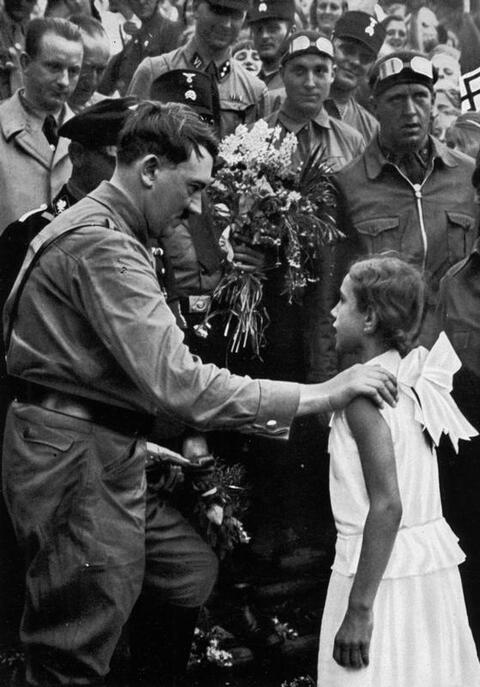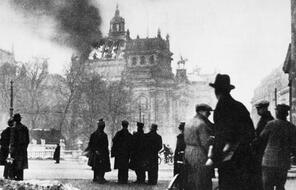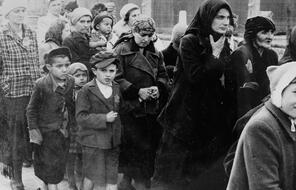Hitler in Power
At a Glance
Subject
- History
- Human & Civil Rights
- The Holocaust
In April 1932, Paul von Hindenburg, at the age of 84, remained president by defeating Hitler and his other challengers. He began his new term in office that spring by naming a new chancellor—Franz von Papen, a close friend and member of the Center Party. Papen ran the country for the rest of the year. When he failed to end the depression, another of Hindenburg’s friends, General Kurt von Schleicher, who belonged to no party, took over in December. He was also unable to bring about a recovery and was forced to resign.
Hindenburg and his advisors were all conservatives who represented wealthy landowners, industrialists, and other powerful people. As the depression persisted, their popular support was shrinking. So in January of 1933, they decided to make a deal with Hitler. He had the popularity they lacked, and they had the power he needed. They also agreed on a number of points, including a fierce opposition to communism, hostility to democracy, and eagerness for Lebensraum—additional land for the German Volk.
Hindenburg’s advisors believed that the responsibility of being in power would make Hitler moderate his views. They convinced themselves that they were wise enough and powerful enough to “control” Hitler. Also, they were certain that he, too, would fail to end the depression. And when he failed, they would step in to save the nation. Hitler fooled them all.
On January 30, 1933, Hitler was sworn in as chancellor of Germany. Because the Nazi Party did not control a majority of the Reichstag, they joined with the German National People’s Party to form a coalition government—that is, one run by multiple political parties, usually with different but overlapping agendas. Nevertheless, Hitler accepted the appointment as if he had been named emperor of Germany and ignored the wishes of the other party. He and his fellow Nazis boasted that they would soon restore the nation and the “Aryan race” to greatness by ending so-called “Jewish racial domination” and eliminating the Communist threat. The result would be a “third Reich” (Reich is the German word for “empire”). The Nazis considered the Holy Roman Empire (952–1806) the “first Reich” and the empire established after the unification of the German states in 1871 the “second.” Hitler was confident that his Third Reich would be the greatest of all, and it would last a thousand years.
Adolf Hitler During 1932 Campaign

Adolf Hitler During 1932 Campaign
Adolf Hitler talks to a young girl during his campaign for president of Germany in 1932. Hitler lost to incumbent Paul von Hindenburg.
Connection Questions
- Why did Hindenburg appoint Hitler chancellor? What advantages and disadvantages did he consider?
- What kind of chancellor did Germany’s political leaders expect Hitler to be? What reasons did they have for those expectations?
Get the Handout
How to Cite This Reading
Facing History & Ourselves, "Hitler in Power" last updated August 2, 2016.








